Calendar of events, awards and opportunities
Every week, we update this list with new meetings, awards, scholarships and events to help you advance your career. If you’d like us to feature something that you’re offering to the bioscience community, email us with the subject line “For calendar.” ASBMB members’ offerings take priority, and we do not promote products/services. Learn how to advertise in ASBMB Today.
Jan. 30: Webinar on NMR in RNA drug discovery
This webinar hosted by Bruker will "overview the versatile roles of NMR spectroscopy in RNA drug discovery for providing the structural basis for the rational drug design. Advanced techniques for simplifying crowded spectra of large RNAs will be discussed." Learn more.
Jan. 31: FASEB Catalyst Conference on liquid–liquid phase separation and inclusions of TDP-43
FASEB's Catalyst Conferences are "short, virtual meetings that are intended to help foster communities in emerging areas of biology." This is the first Catalyst Conference of 2024, and it "will bring together scientists to discuss on the many unresolved and still debated issues on TDP-43 structure, biology, misbehavior and involvement in diseases." Learn more.
Jan. 31: SACNAS webinar on mentoring for true diversity
At 3 p.m. Pacific on Jan. 31, the Society for Advancement of Chicanos/Hispanics & Native Americans in Science is hosting a webinar titled "Mentoring for #TrueDiversity in STEM." It will cover mentorship and feature a panel of SACNAS award-winning mentors and a Q&A. Mentees and mentors are invited to join the conversation. Learn more.
Feb. 1: ASM webinar on medically important yeasts
At 12 p.m. Eastern on Feb. 1, the American Society for Microbiology is hosting a webinar titled "Medically important yeasts: A guide for budding mycologists." Speaker Lars F. Westblade, director of the clinical microbiology service at New York–Presbyterian/ Weill Cornell Medical Center and associate professor at Weill Cornell Medicine, "will dive into vital clinical identification and antifungal susceptibility testing concepts." Learn more.
Feb. 2: Webinar on single-cell transcriptomics of oral cancer
The Centre for Predictive Human Model Systems is hosting a webinar on how single-cell transcriptomics can help researchers untangle the intricacies of oral cancer. At 5:30 a.m. Eastern on Feb. 2, Arindam Maitra at the National Institute of Biomedical Genomics in West Bengal will share about his research on gingiva-buccal oral cancer. Learn more.
Feb. 5: 2024 Lasker Awards nomination deadline
The Lasker Foundation is accepting nominations for the 2024 Lasker Awards in biomedical research and advocacy. Prize categories include: basic medical research, clinical medical research and public service. Winners will receive a $250,000 honorarium. Learn more.
Feb. 7: SACNAS webinar on how to become a doctor
At 11 a.m. Pacific on Feb. 7, the Society for Advancement of Chicanos/Hispanics & Native Americans in Science is hosting a webinar for premed and current med students about how to become a doctor. Current medical student Siam Boyd and Dr. Thaius Boyd, both former tribal college/university students, will talk about their journeys in becoming a doctor. They will "share their experiences with shadowing, internships, and how they navigated the medical school track." Learn more.
Feb. 9: Webinar for International Day of Women and Girls in Science
At 9:30 a.m. Eastern on Feb. 9, Woman to Woman Mentoring, Hood College and Leidos Biomedical Research are hosting a hybrid event at Hood College in Frederick, Maryland, titled "Women in Science Speak" in observance of the International Day of Women and Girls in Science. It will feature a panel discussion during which women in science will "share their perspectives on pursuing careers in science, advancing allyship and mentorship, achieving goals through self-advocacy and more." Learn more.
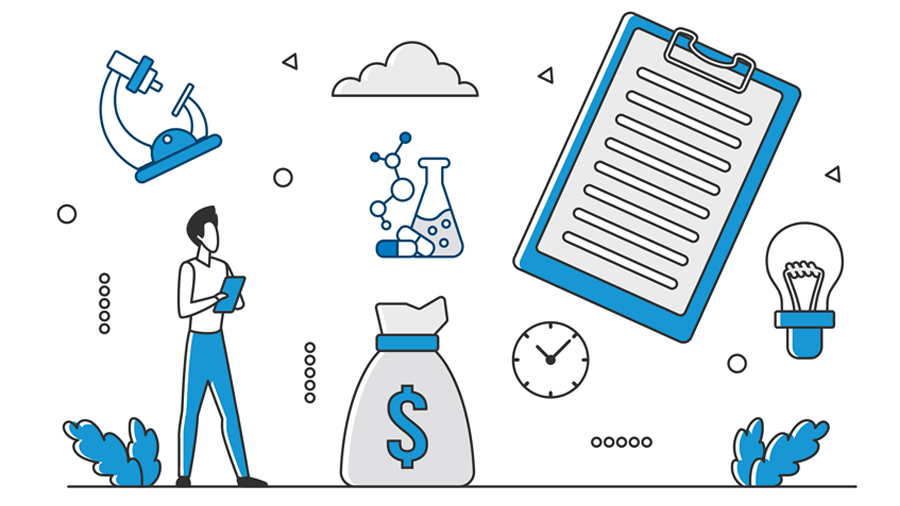
Feb. 14: ASBMB webinar on DEAI funding and training opportunities
Join the ASBMB public affairs department for its monthly "Finding the funds" webinar connecting ASBMB members with the unique funding opportunities that are available to them. For this edition, the ASBMB has paired up with the National Society of Black Engineers to highlight DEAI funding and training opportunities at the National Science Foundation and National Institute of General Medical Sciences. Join us to discover the many ways you can get funded.
Feb. 14: Webinar about best practices for preparing datasets
At 1 p.m. Eastern on Feb. 14, FASEB is hosting a webinar titled "5 reasons we can't publish your dataset." This virtual conversation will cover "best practices for preparing datasets and how to avoid common mistakes," plus "some of the most common reasons data is sent back to authors" to help attendees ensure their dataset is published rapidly and smoothly. Learn more.
Feb. 16: NIH Summer Internship Program deadline
The NIH's Summer Internship Program is "an opportunity for students in college, graduate, and professional school to perform a summer research internship in the Intramural Research Program at the NIH." Interns work with a principal investigator and research opportunities include: "biomedical, behavioral, and social sciences with opportunities to explore basic, translational and clinical research." There will be a Q&A webinar at 3 p.m. Eastern on Jan. 4. Learn more.

Feb. 21: ASBMB webinar on scientists who have run for office
Over half a million people serve in elected office in the United States, and even more serve their communities through appointments to boards and commissions. However, public office remains a rare and enigmatic path for many scientists. This webinar aims to demystify the path from the bench to the ballot by highlighting the experiences of biochemists and molecular biologists serving in office at various levels. It starts at 2 p.m. Eastern on Feb. 21. The panel will discuss their career trajectories, their experience running for and serving in office, and how they use their scientific background in office. Learn more and register.
Feb. 23: Deadline to submit nominations for the Royal Society's medals and awards
The Royal Society is accepting nominations for its medals and awards. The awards celebrate excellence across the biological, physical and applied sciences, and around 30 medals will be announced in the summer. All scientists are invited to nominate individuals and teams for the accolades, especially when they "recognise the achievements of individuals and teams from groups that are under-represented in science." Learn more.
Feb. 28: Deadline for HHMI's Gray fellowship applications
The Howard Hughes Medical Institute will select up to 25 early-career scientists for 2024 Hanna H. Gray Fellows Program. The competition is for postdocs in the basic biological and biomedical sciences. Its goal is "to increase diversity in the professoriate by supporting early-career researchers who show exceptional promise of becoming successful academic scientists, which includes the potential to build and contribute to an equitable and inclusive lab culture." Fellows get up to $1.5 million for up to eight years, from their postdoc period to the start of their labs. The deadline to apply is at 3 p.m. Eastern on Feb. 28. Learn more.
Feb. 29: Deadline to apply for the Young Scientist Program Fellowship at Biomolecular Horizons 2024
On Sept. 20–22, the International Union of Biochemistry and Molecular Biology and the Federation of Asian & Oceanian Biochemists & Molecular Biologists is holding a fellowship for young scientists in the Macedon Ranges in Australia. Early-career researchers are invited to participate in the Young Scientist Program. Highlights include:
- Two days of pre-conference science and networking experiences.
- Presentations from all participants.
- Keynote speakers.
- Workshops and activities.
March 1: FDA's Rare Disease Day public meeting
In observance of Rare Disease Week, the Food & Drug Administration will host a virtual public meeting from 9 a.m.–4:30 p.m. Eastern on March 1. Topics that will be covered during panel discussions include "the legal framework for approving studies and medical products at FDA, what FDA does during review processes to approve medical products, decentralized clinical trials and digital health technologies" and more. As stated in the event description, "stakeholders are invited to provide their perspectives on the discussion questions through the public docket." Learn more.
March 15–16: National Postdoctoral Association conference
The 2024 National Postdoctoral Conference will be held in Seattle. It is "the largest national conference and networking event dedicated to the postdoctoral community " during which attendees will have the "opportunity to gather and enhance their professional development and leadership skills." Learn more.
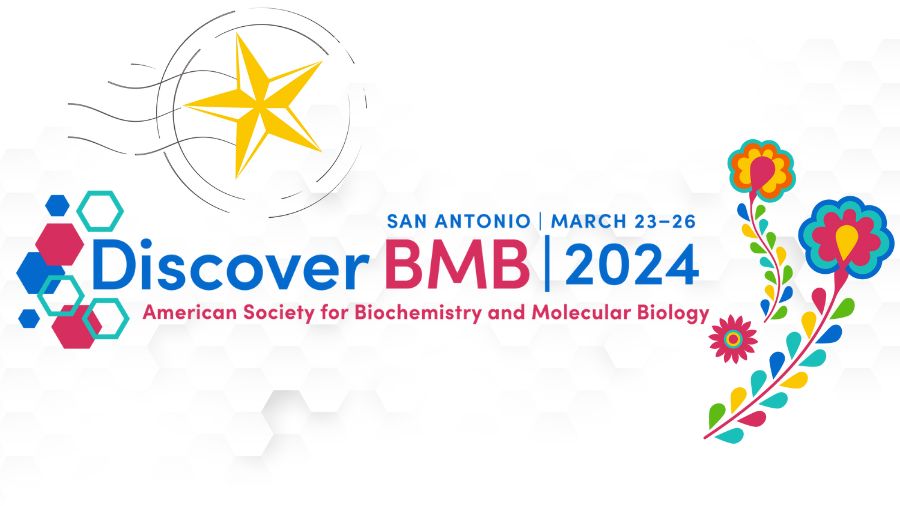
March 23–26: See you at #DiscoverBMB in San Antonio
#DiscoverBMB is the annual meeting of the American Society for Biochemistry and Molecular Biology. With a mission to share the latest, most impactful research findings in the molecular life sciences, #DiscoverBMB offers an exciting agenda that includes talks by the field's foremost experts, interactive workshops on the latest trends, technologies and techniques, and an invigorating exhibition of posters, services and products. The meeting attracts researchers in academia and industry, educators, trainees and students from across the globe. It offers unparalleled opportunities for collaborating, networking and recruiting. See the symposia themes and organizers. Learn more.
April 1: Deadline for the Breakthrough Prize nominations
The public nomination period for the 2025 Breakthrough Prizes opened Jan. 9. The Breakthrough Prize will honor a top scientist in life sciences, physics and mathematics, each with a $3 million award. A globally broadcast gala awards ceremony will be held to "celebrate the laureates’ achievements and to foster broad popular support for scientific endeavors and inspire the next generation of scientists." Learn more.
April 5: Scientist Mentoring & Diversity Program Biotech and MedTech application deadline
The Scientist Mentoring & Diversity Program is a one-year career mentoring program that pairs ethnically diverse students (undergraduate juniors and seniors, baccalaureate, master's or Ph.D.), postdocs and early-career researchers with industry mentors "who work at companies in the medical technology, biotechnology and consumer healthcare industries." Scholars will attend a five-day training session "to learn about career opportunities in industry and receive career development coaching. They also attend a major industry conference." Learn more.
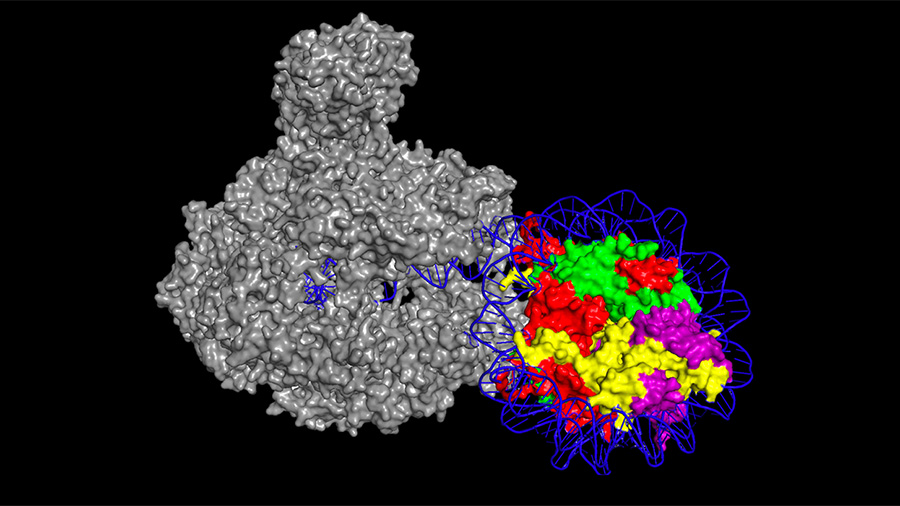
Sept. 26–30, 2024: ASBMB's transcriptional regulation meeting
The fields of transcription biochemistry and molecular biology have become one with chromatin biology and epigenetics with extensive cross-talk. RNA polymerase II and its transcription machinery play an essential role in the modification and remodeling of chromatin, and chromatin regulates gene expression in both normal and pathological conditions. With recent innovations and technological advances in clinical and preclinical research, personalized medicine is becoming a reality, in part because of advances in our understanding of RNA polymerase II. Many established and new investigators have taken on the challenge of elucidating the molecular mechanisms of gene expression by RNA polymerase II in the context of chromatin. The community is highly dynamic and multi-disciplinary, with an ever-changing set of focal areas that establish new paradigms and new ways of thinking about the topic. Even after decades of study, this research area continues to advance, reveal new concepts, and bolsters almost every other area of biology. Learn more.

Jan. 21–24, 2025: ASBMB Deuel Conference on Lipids
The 2025 Deuel conference will be hosted at the Hyatt Regency in Long Beach, Calif. It is a must-attend event for leading lipids investigators — and for scientists who’ve just begun to explore the role of lipids in their research programs. This event will bring together a diverse array of people including those who have not attended Deuel or perhaps any lipid meeting before. The conference is a forum for the presentation of new and unpublished data, and attendees enjoy the informal atmosphere that encourages free and open discussion. Interested scientists are invited to attend and encourage trainees to submit abstracts. Read our Q&A with the organizers. Learn more.

Aug. 17–21, 2025: The 15th international symposium on proteomics in the life sciences
This five-day symposium, held at the Broad Institute of MIT and Harvard in Cambridge, Mass., will be an international forum for discussion of the remarkable advances in cell and human protein biology revealed by ever-more-innovative and powerful proteomics technologies. Formerly known as the "International symposium on mass spectrometry in the health and life sciences," the meeting has been renamed to reflect the growing number of partial and non-mass spectrometry–based methods under discussion.
The symposium will juxtapose sessions about methodological advances with sessions about the roles those advances play in solving problems and seizing opportunities to understand the composition, dynamics and function of cellular machinery in numerous biological contexts. In addition to celebrating these successes, we also intend to articulate urgent, unmet needs and unsolved problems that will drive the field in the future. In addition to talks by invited plenary and session speakers, short talks will be selected from submitted abstracts. See the program of our previous meeting.
Themes:
- Sunday minisymposium — Biofluid proteomics: discovery to clinic
- Emerging technologies: Sample preparation and automation
- Emerging technologies: Instrumentation and data generation
- Emerging technologies: Single cell and spatial proteomics
- Proteomics in structural biology and integration with other high resolution methods
- Interactomics: Understanding pathways, networks and molecular machines
- Chemical biology and chemoproteomics: Toward functional understanding of drugs and their targets
- Cell, organellar and tissue biology: Signaling, cross talk and communication
- Impact of clinical and translational proteomics in human health and treatment
- Multiomics integrative analysis and the emerging roles of machine learning and neural models
Do you have a great idea for a scientific event?
We are now accepting proposals for scientific events to be held in 2024 and 2025. You pick the topic, the sessions and the speakers, and we’ll do the rest.
That’s right! We’ll manage registration, market the event to tens of thousands of scientists, and handle all the logistics so that you can focus on the science.
The top areas of research interest among ASBMB members include the following, but we’ll consider all proposals:
- Protein structure and folding
- Molecular bases of disease
- Gene regulation
- Signal transduction
- Metabolism
What molecule, method or research question needs more attention? We’re here to help you realize your vision and deliver cutting-edge science to the BMB community.
Year-round: Van Andel Institute postdoc preview applications
Van Andel Institute offers sernior graduate students who are exploring postdoc options the opportunity to visit VAI to learn about its postdoctoral training positions. Applications are accepted year-round, and participants will meet one-on-one with faculty and explore VAI's scientific resources. There is no cost to attend for selected applicants. Learn more.
Year-round: HHMI Janelia Visiting Scientist Program applications
Graduate students, postdoctoral fellows and established senior investigators are all invited to participate in Janelia's Visiting Scientist Program. Janelia accepts visitor proposals on a continuous basis. Since 2007, more than 410 visiting scientists from 23 countries have participated in the program. Learn more.
Enjoy reading ASBMB Today?
Become a member to receive the print edition four times a year and the digital edition monthly.
Learn moreFeatured jobs
from the ASBMB career center
Get the latest from ASBMB Today
Enter your email address, and we’ll send you a weekly email with recent articles, interviews and more.
Latest in Careers
Careers highlights or most popular articles
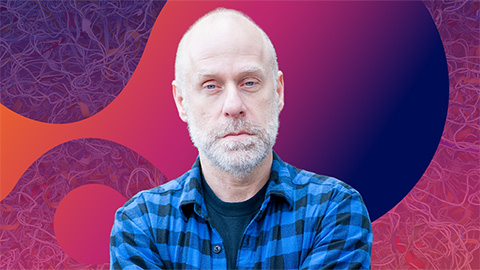
Mapping proteins, one side chain at a time
Roland Dunbrack Jr. will receive the ASBMB DeLano Award for Computational Biosciences at the ASBMB Annual Meeting, March 7–10, just outside of Washington, D.C.

Exploring the link between lipids and longevity
Meng Wang will present her work on metabolism and aging at the ASBMB Annual Meeting, March 7-10, just outside of Washington, D.C.

Upcoming opportunities
Calling all biochemistry and molecular biology educators! Share your teaching experiences and insights in ASBMB Today’s essay series. Submit your essay or pitch by Jan. 15, 2026.

Defining a ‘crucial gatekeeper’ of lipid metabolism
George Carman receives the Herbert Tabor Research Award at the ASBMB Annual Meeting, March 7–10, just outside of Washington, D.C.
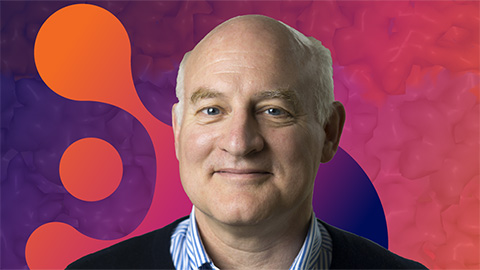
Building the blueprint to block HIV
Wesley Sundquist will present his work on the HIV capsid and revolutionary drug, Lenacapavir, at the ASBMB Annual Meeting, March 7–10, in Maryland.
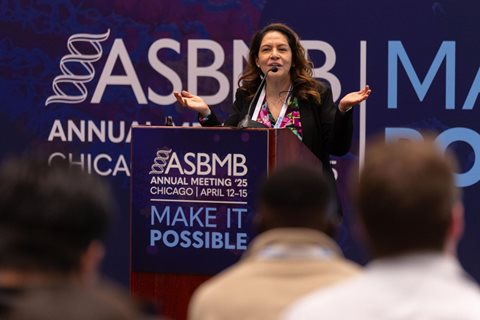
Upcoming opportunities
Present your research alongside other outstanding scientists. The #ASBMB26 late-breaking abstract deadline is Jan. 15.
